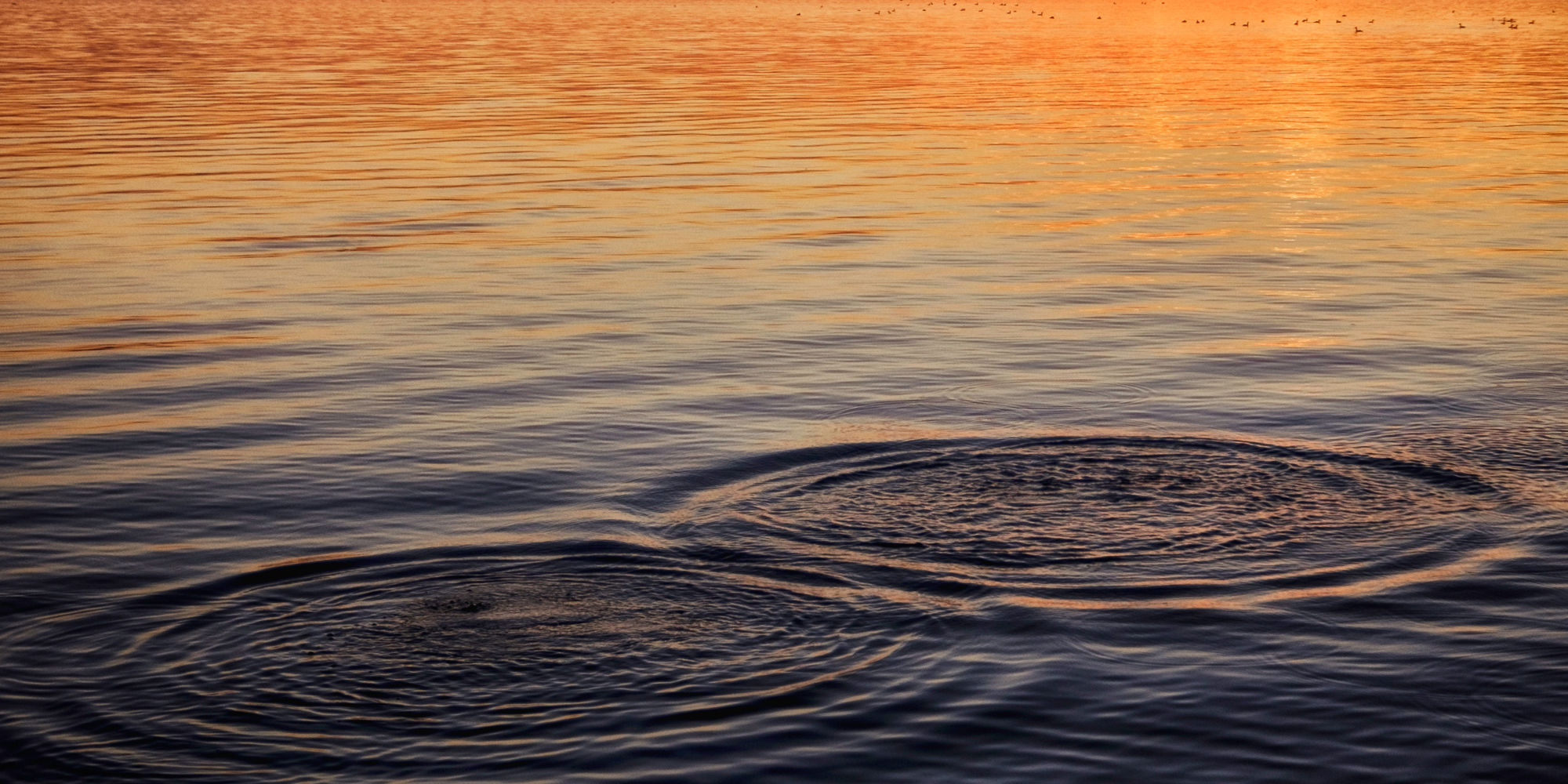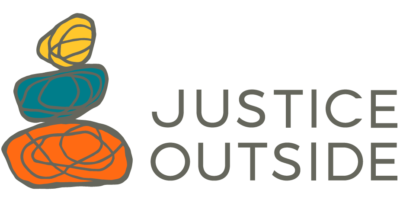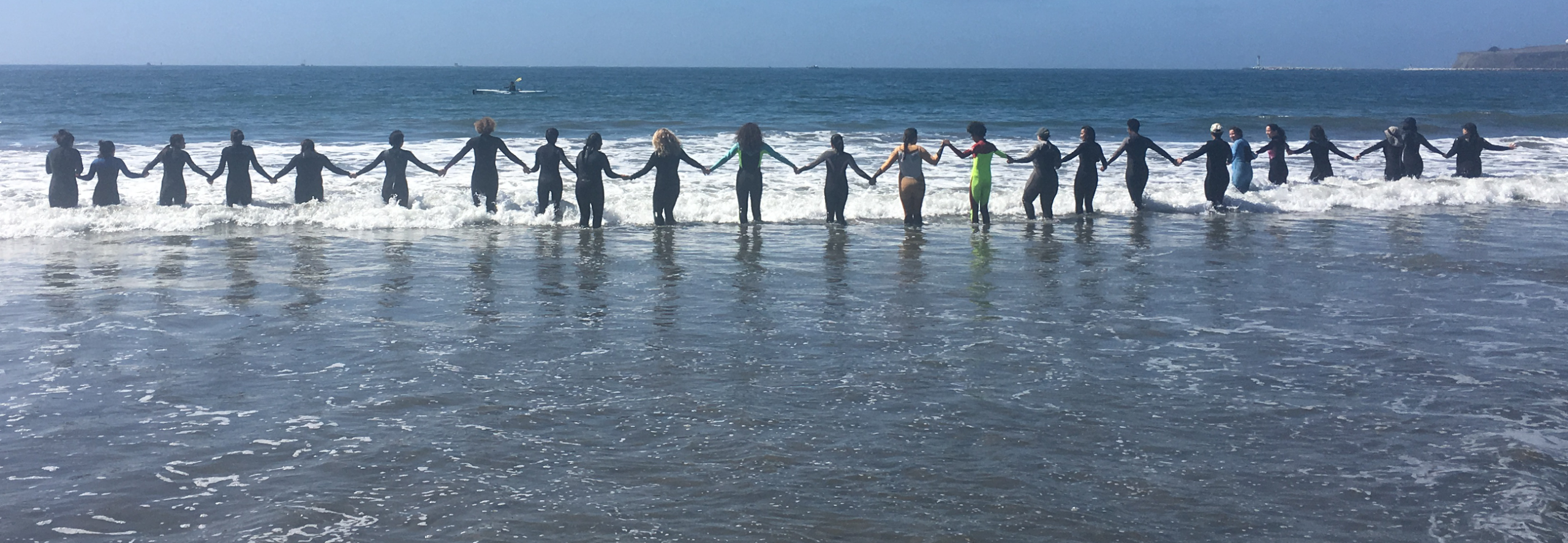“When I have a little more time to clear my head I’m going to write a longer piece about being pulled over in the National Park while I was driving a van full of Black women down the mountain after experiencing a magical hike together. I’m going to tell you about the park police officer who approached my van with his hand on his gun and demanded I roll down the back windows so he could see who’s inside. I’m going to tell you how he accused me of being drunk. Asked me what I was doing in the park and then told me if I cooperated he wouldn’t give me a ticket… a ticket for what I asked? Driving too close to the car in front of you. “That’s a crime in Colorado….”
I led three advanced hikes over the course of three days this last weekend. I’ve personally brought hundreds of Black women to Rocky Mountain National Park over the past four years. I’ve organized trips at every park in the country. Inspired thousands more to take a step into the great outdoors. I was on the cover of Outside Magazine starred in a Christmas commercial for REI partnered with the Sierra Club to train Outdoor trip leaders, was named a Yosemite National Park Ambassador, and yet this man was asking me what I was doing in the park. Asked me while still holding his hand to his gun, despite seeing our hiking gear when we rolled the windows down. Asked me what I was doing there as if he wasn’t standing on stolen land and I was somehow trespassing.
This is why I turn down opportunities to speak on diversity and inclusion in the outdoors. No I don’t want to be on your panel. No I don’t want to write an article or give a quote. No I don’t believe that things are changing. Diversity and inclusion? How about decolonization and reparations. When you want to talk about that I’ll be ready.”
— Facebook post by Vanessa Garrison, one of the founders of GirlTrek, a national nonprofit organization whose mission is to “pioneer a health movement for African-American women and girls grounded in civil rights history and principles through walking campaigns, community leadership, and health advocacy.“
On so many levels this post rocked me. My emotions swung from angry to sad to feeling overwhelmed with the fact that regardless of what we do…who we are…and what we know….race is still a dominant lens in this country.
I nodded as I read Vanessa’s stance on not being a spokesperson for issues of diversity and inclusion in the outdoors. I understand that sentiment.
When I first started in my role at Justice Outside, I was eager and enthusiastic about the growing number of invitations for our staff to speak or facilitate a panel (mostly for free) in my inbox. However, over time, this desire to say yes to everything has begun to shift to a more mindful analysis:
Why us? Are you looking for us to contribute to the conversation in a meaningful way? Or is your end goal just to have our presence in the room?
Do you really want to do the hard work necessary to shift the narrative or are you merely looking for more evidence of oppressive interactions in public spaces?
Unfortunately, asking these questions can be a sharp reminder of how far we still need to go to even begin to have the conversations that are needed to bring about change.
But what happens if we decline these invitations? Is it okay to hope they can find someone else to sit on the panel and ideally push past the initial question to get to a deeper conversation?
If we say no, are we staying true to our mission?
There is no easy or right answer here. This is hard work. But I truly believe we must stay the course.
Mother Teresa says, “I alone cannot change the world, but I can cast a stone across the waters to create many ripples.”
I believe that we must continue to cast our stones across the water – one panel…one presentation…one speaking engagement at a time. Those ripples will begin to shift this narrative. Our collective voice will begin to shed light on racist behavior. Together, stone by stone, we will make it clear that we will not back down. We belong here. And we will work with you to recognize your bias in hopes that those that come after us will never have an experience like Vanessa’s again.


